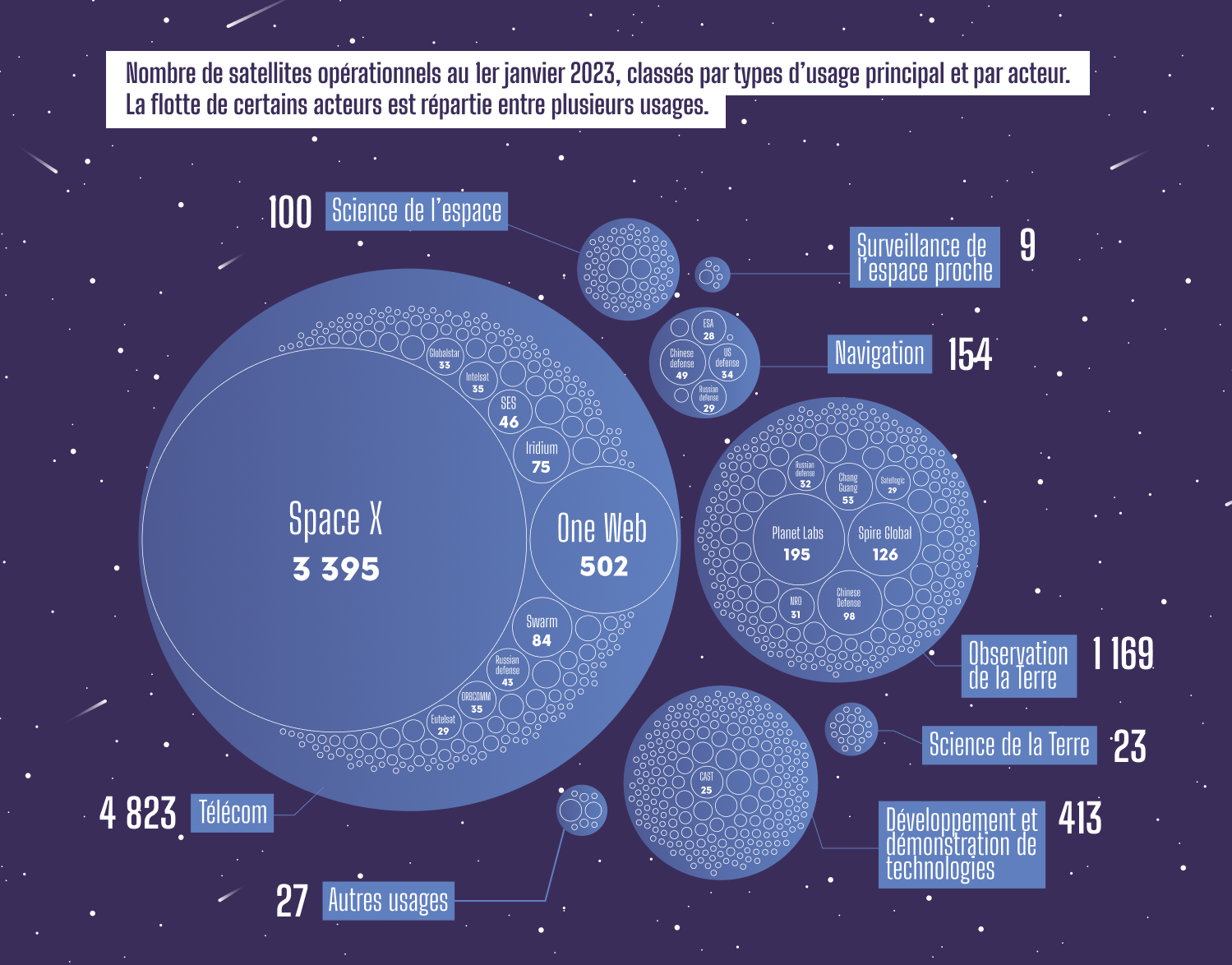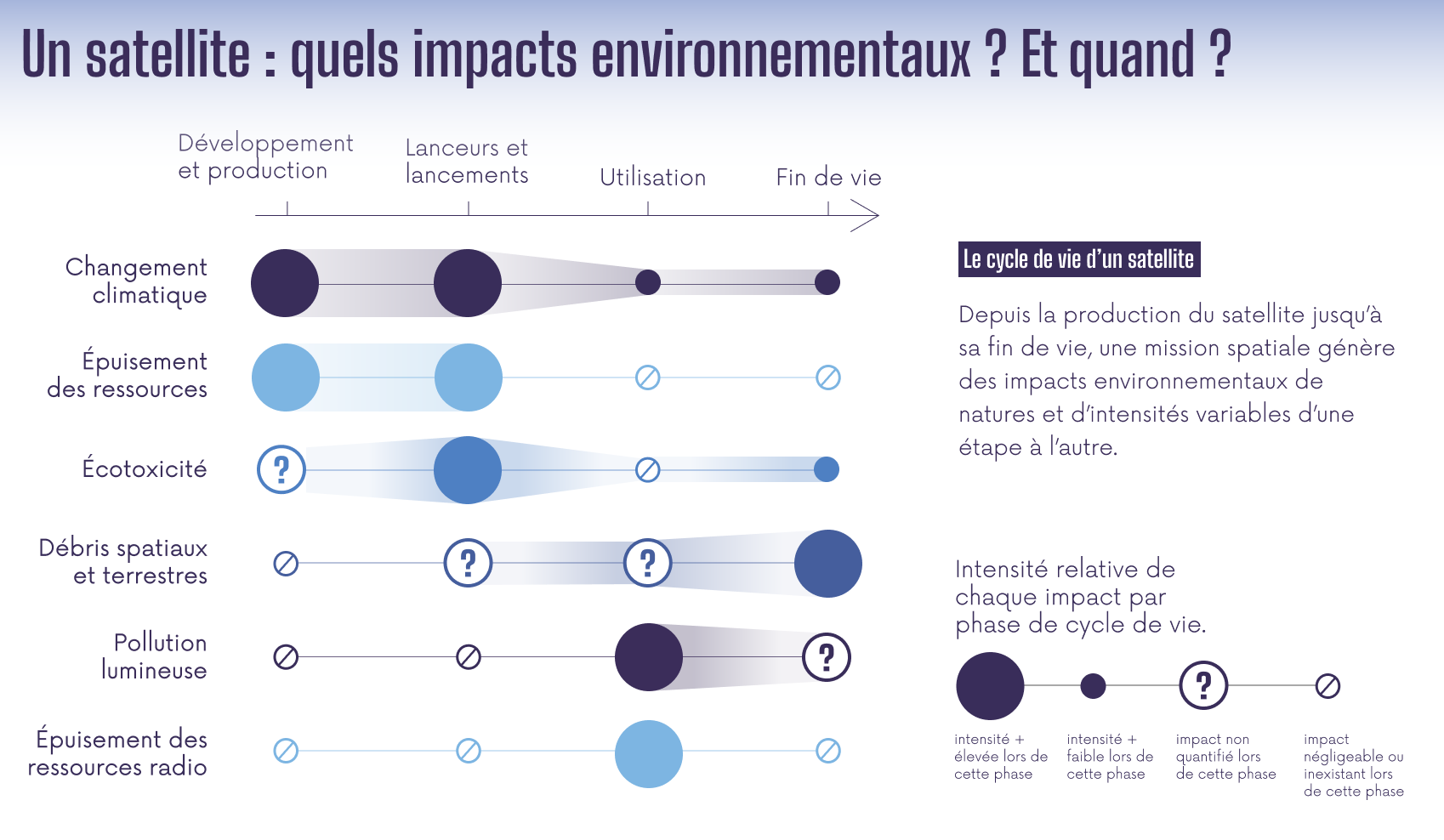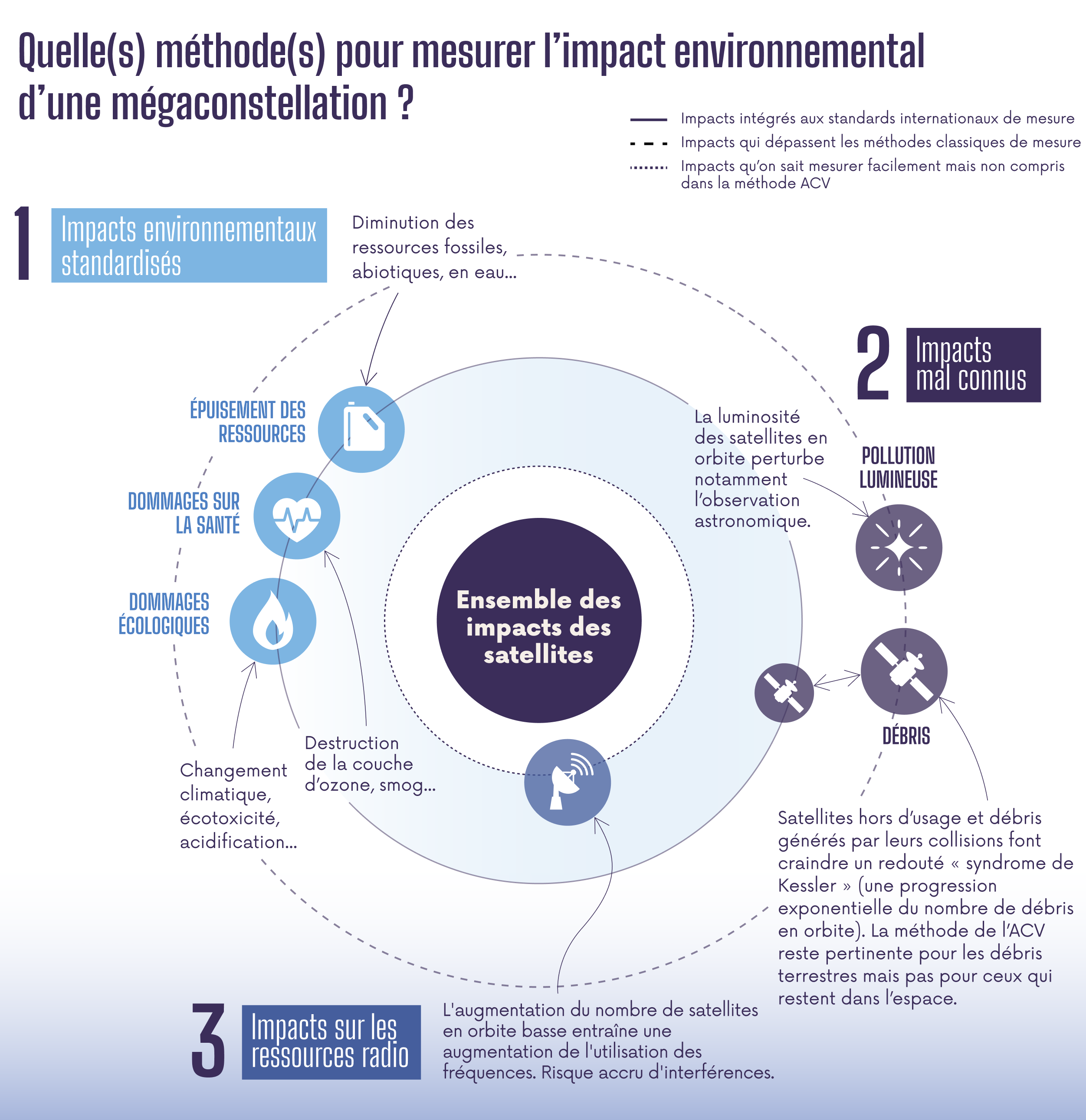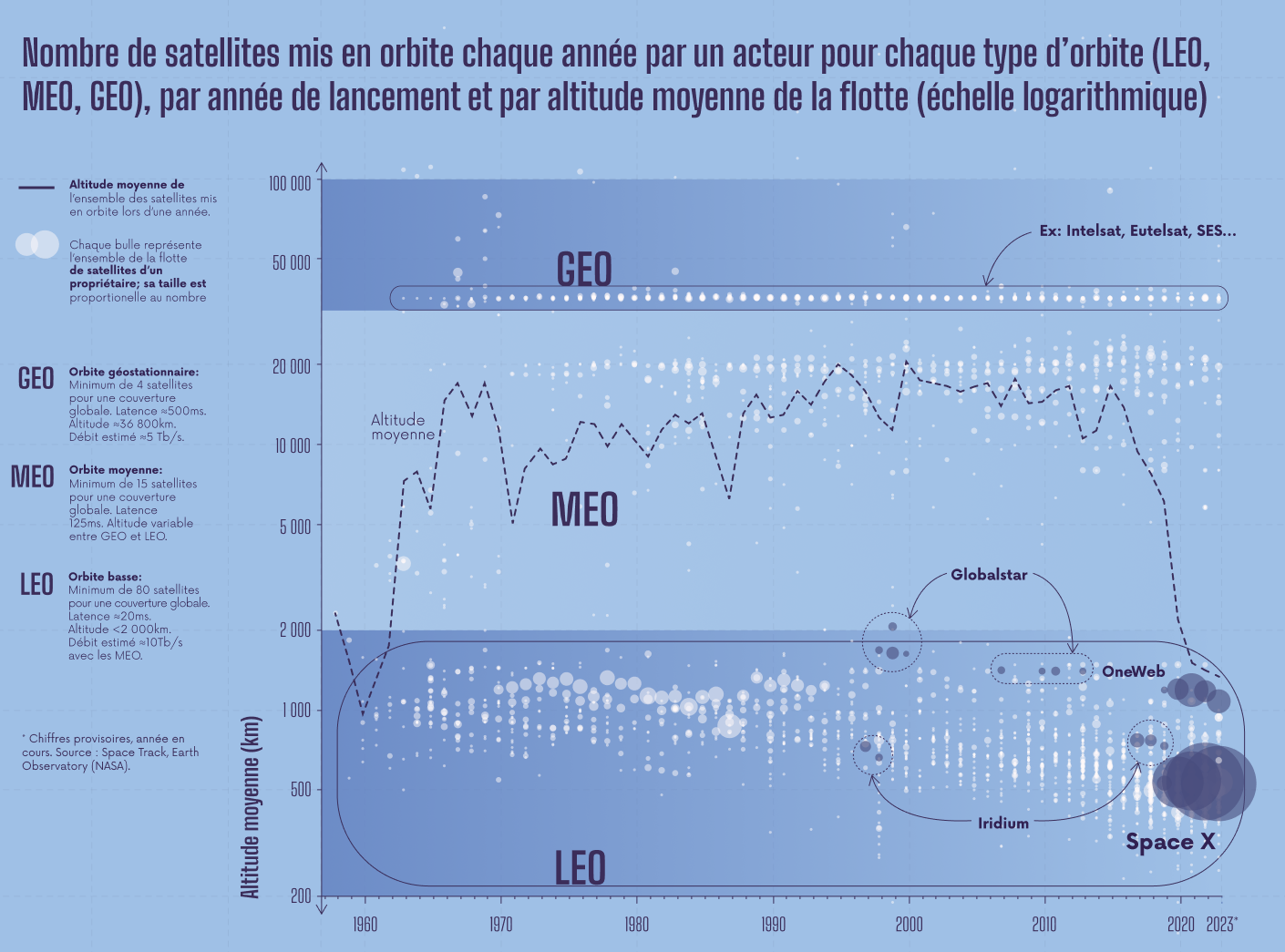Forecasting the weather, predicting natural disasters, assisting navigation, broadcasting news and information, providing connectivity to everyone, everywhere in the world, or measuring the effects of climate change… launched into space over the past seven decades, satellites help people in their daily lives, and deepen the scientific knowledge that can help preserve our planet. But the sudden proliferation of megaconstellations over the past three years has been a game changer: without the proper international regulation the some 9,000 satellites currently orbiting above our heads could increase more than tenfold over the next decade. This figure alone forces us once again to raise the question of their impact on the environment, not only in space but also on Earth.
ADEME, Arcep and CNES are teaming up for a day of discussion and debate, on 20 November 2023 at the Cité des Sciences et de l’Industrie.
ADEME, Arcep and CNES are hosting a day of discussion and debate on 20 November 2023 at the Cité des Sciences et de l’Industrie, with the aim of gathering different perspectives and comparing viewpoints on the different questions raised by this forecast: what are the benefits of these megaconstellations? What impacts are we talking about, and can we reduce them? Should we prioritise certain uses? How can we foster a system of international cooperation devoted to the sustainable management of space?
Telecommunication satellites in low earth orbit: a new stage in satellite internet connectivity
Telecommunication satellites have been providing internet and mobile connectivity for several decades, particularly in areas without fibre access or deprived of mobile coverage. The advent of megaconstellations in low earth orbit marks a new stage in satellite connectivity, by providing reduced latency (round-trip time), almost equal to that of wireline connectivity solutions. The internet access services that rely on these constellations of satellites in low earth orbit are very popular. But our societies’ demand to be ever more connected, over ever faster connections, comes at the cost of an ongoing increase in the number of satellites in orbit (from thousands to tens of thousands of satellites in every megaconstellation, instead of a few satellites to provide the service worldwide using high-throughput geostationary satellites). The hybridisation of satellite technologies in different orbits with terrestrial networks is also a solution currently being developed.
Proliferation of satellites in low earth orbit: what does it mean for the environment?
According to the UN, the number of satellites in orbit could climb from the current 9,000 to 100,000 by 2030. This massive increase is raising concerns about their impact on the environment, both on Earth and in space.
From satellites’ launch to the end-of-life management phase, this situation raises a great many questions: what is the level of greenhouse gas emissions generated by satellites? What are the dangers of cascading collisions between orbiting satellites and debris falling to Earth? How are they polluting the upper atmosphere? How are they interfering with astronomical observation?
Is this rate of growth sustainable? Do we need to review our needs and favour certain specific uses? Do we need to limit the number of satellites? Do we need to strengthen safety and security rules associated with their management? These are just some of the questions that will be addressed during this event.
International cooperation is a crucial ingredient in managing space systems. France, which is one of the leading international space powers, is involved and proactive in every international body devoted to the coordinated and sustainable management of space.
France is also deeply committed to fully incorporating environmental considerations into the space programmes that it is developing. The introduction of a Space Operations Act (LOS: Loi sur les Opérations Spatiales) in 2008 testifies to France’s commitment to sustainable space, with technical regulation that applies to all French satellite operators. This regulation defines requirements in areas such as collision avoidance and the decommissioning and disposal of satellites at the end of their operational mission. Discussions are underway on how to ensure that the application of these best practices can be extended to every system providing services in France, regardless of the satellite operator’s nationality. In concert with its line ministries, CNES is also working on how to best support the European Union initiative to introduce a similar EU-wide space law.
Lastly, examining the impact of satellites needs to be part of the wider-reaching analysis of electronic communication networks’ impact on the environment being conducted by ADEME and Arcep.




